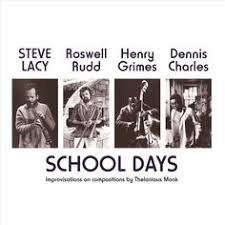The Bebop language had so taken hold that subsequent 1950's jazz styles were deeply in its debt[all these names could have quotation marks around them]: Cool, West Coast, the Tristano school, Hard Bop, Chamber jazz, Soul Jazz.
Questions present themselves: Was it easier for these players to make the dramatic musical leap they did because they were less in thrall to bop? If so, why? One thing strikes me-the language of bop is so rich and deep that it can simply be addictive. Once you're inside it, it's easy to become obsessed with exploring it.
Top 50 Jazz Blog

Tuesday, October 17, 2017
New Ears and the New Jazz of the 1950's
One of the fascinating aspects of the "new" jazz music of the mid-late 1950's. was the background of its creators. Three spent formative years in rhythm and Blues bands: Ornette Coleman, Don Cherry and Billy Higgins. Charlie Haden came from a folk-country background. Cecil Taylor was immersed in contemporary classical music. Steve Lacy and Roswell Rudd were "Dixieland" players. Henry Grimes studied classical and played R&B gigs. Dennis Charles came from traditional Caribbean music.
Subscribe to:
Post Comments (Atom)




2 comments:
Bop is also formally rigorous. Players can tell when you're skating, and because the rigor is the key to its richness and depth, you could conceivably play some totally original stuff that would sound like skating because it didn't follow the formal rigor.
RIght. Well, that's why there was such a schism in the way Ornette and Cecil's music was greeted.
Post a Comment